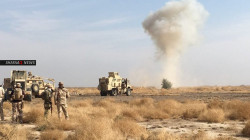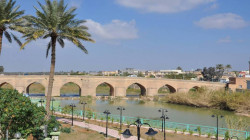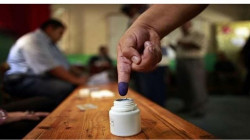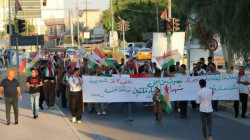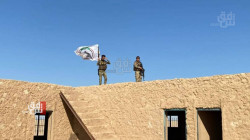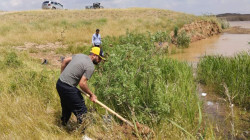Amidst party dispersion and the hurdles of October: obscurity reigns over the electoral landscape for the Kurds of Diyala
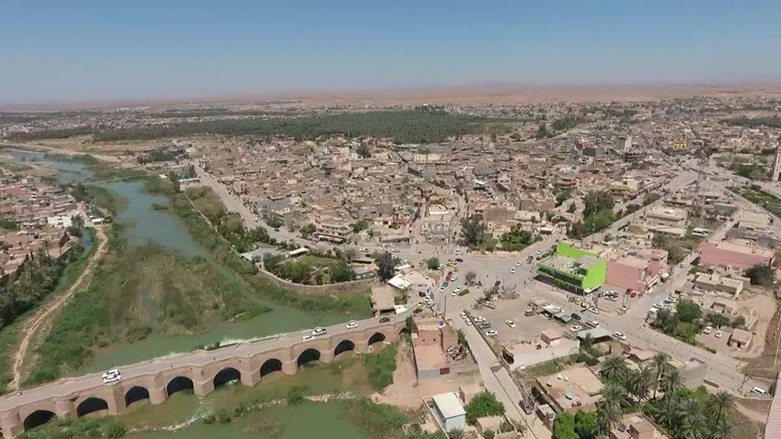 Khanaqin city
Khanaqin city
Shafaq News / The Kurdish component in Diyala province seeks to regain its political and administrative role through the gateway of local elections, despite the dispersion and multiplicity of lists and the repercussions of the events of October 2017. While most Kurdish political parties find the election scene "obscure," it will only become clear after the results.
Diyala province shares borders with Iran and is linked by common boundaries with the Kurdistan Region, inhabited by a mix of ethnicities.
Administrative neglect
Ibrahim Aziz, the Electoral Committee official for the Kurdistan Democratic Party (KDP) in Khanaqin, emphasized, "It is difficult to revert Khanaqin and its environs to the pre-October 2017 state. The elections will not achieve that regardless of their results because Khanaqin is controlled by factions of al-Hashed al-Shaabi (Popular Mobilization Forces-PMF) and federal security forces, sidelining and ending the security role of Peshmerga and Asayish, despite the latter's limited presence in the district."
Aziz added, "Administratively and security-wise, Khanaqin's fate is outside Kurdish influence, posing a significant negative factor confronting the electoral process and outreach campaigns."
Furthermore, the KDP, led by Masoud Barzani, relocated its headquarters from disputed territories after the military campaign launched by Iraqi forces following KRI's independence referendum in September 2017, including contested areas in Diyala like Khanaqin, predominantly inhabited by Kurds.
Regarding concerns and harassment faced by KDP candidates during election campaigns in Khanaqin and its environs, Aziz clarified, "There have not been any reported harassments yet, and we have started disseminating electoral campaigns in Khanaqin, soon to extend to its affiliated areas." He highlighted, "The KDP is committed to its principles of fostering peaceful coexistence and preserving Khanaqin's collective interests."
Aziz noted, "it is premature to speculate on the KDP's prospects until the election results are announced," indicating that "the party will engage in elections with a slogan of rejuvenating candidates to meet future challenges."
Erroneous electoral strategies
Taha Ibrahim, a candidate for the Patriotic Union of Kurdistan (PUK), reviewed the issues hindering Kurdish competition in elections, citing "deprivation of the security file, challenges in resolving lingering issues with relevant government entities, and misguided electoral strategies over past cycles."
Ibrahim stated, "One of the significant electoral challenges is the Kurds' loss of control over the security dossier, which poses a major challenge to the electoral process. Also, the interruption and irregularity of salaries by the Regional Government (KRG), failure to resolve issues for students at Garmyan University regarding government appointments, alongside the errors and strategies of the past by repeatedly nominating unsuccessful or electorally disengaged individuals."
The electoral candidate emphasized, "Our current list includes new faces and specialized competencies, including personalities from international and humanitarian organizations, attracting public support, unlike other lists that are largely composed of the same individuals, which we consider a strength for our list."
Ibrahim reiterated, "the Kurds' deprivation of the security file presents a significant challenge to the electoral process in the areas belonging to Khanaqin. However, we have adopted a new tactic by restoring voters' confidence through renewal, competence, and social acceptance."
Support for a unified electoral directorate
Meanwhile, Hussein Jalil, an official from the Socialist Democratic Party of Kurdistan in Khanaqin, believes that "adopting a single electoral district grants dispersed Kurds across administrative units the ability to elect their representatives and Kurdish lists or supporters of Kurdish lists."
Jalil stated, "I expect Kurds to secure at least two seats in Diyala's council with the presence of three competing Kurdish lists in the elections and substantial Kurdish voter turnout."
Regarding the electoral prospects for Kurdish lists, Jalil opined, "it is challenging to predict due to the demographic diversity in Khanaqin."
Anticipated Kurdish absence in the provincial council
Political and media activist Ali Abdul Sattar Al-Hajiyah predicted the absence of Kurdish representation in Diyala's council, citing "the Kurds' loss of confidence in political forces, a general crisis across political factions in Iraq, along with the dispersion of Kurdish lists that may keep their votes away from securing any seat in the Provincial Council."
Al-Hajiyah highlighted, "Negative impacts hampering the Kurdish prospects and votes after adopting a single electoral district and the multiplicity of Sunni and Shia competing forces in Khanaqin's elections and its environs."
Regarding the electoral prospects of Kurdish lists, Hussein Jalil said, "The PUK has a higher chance compared to other lists due to its dominance over the local government in Khanaqin."
It is noteworthy that the local elections hold significance as these councils elect the governor, deputies, and prepare the governorate's budget within the framework designated by the Baghdad government, holding financial allocations. These councils also possess the right to dismiss governors and district heads, chosen based on each governorate's population distribution.
